|
home
|
APNOEVISION.CH
|
|
|
LAUFEND NEUE KURSE
AIDA
Competition Safety Freediver
Course Outline PREREQUISITES To enrol in the AIDA Competition Safety Freediver course, an individual must:
•
Be 18 years of age or older (16 years with parent or guardian
consent)
The purpose of the AIDA Competition Safety Freediver Course is to
familiarise freedivers with the safety procedures and rules in place
during an AIDA competition. Students will develop their knowledge
and skills so they can act as a Safety Freediver during AIDA
competitions. To conduct an AIDA AIDA Competition Safety Freediver
Course, the following knowledge development, confined water session
and open water session are to be included: KNOWLEDGE DEVELOPMENT
The knowledge development will take place in a classroom-like
environment.
NOTE! This course outline have not yet been ajusted to the AIDA
International Competition and Record rules Version 12. The
paragraphe numbering bellow is therefore incorrect, but each subject
should still be covered in the course. The theory session will include: General Information on AIDA International Competitions
•
Introduction to AIDA International and AIDA International
Competitions Pool Competitions
•
General Characteristics of AIDA International Pool Competitions Static Competitions
•
Static Competition Setup Dynamic / Dynamic No-Fins Competitions
•
Dynamic Competition Setup
•
General Characteristics of AIDA International Depth Competitions Constant Weight with Fins / Constant Weight Without Fins / Free Immersion Competitions
•
Competition Setup
The session should be conducted in a swimming pool of at least 25m
in length or similar confined water. The student safety freediver
should have access to a floatation device to support them during
each scenario. Static and Dynamic Apnea Session After this session the student safety freediver will have:
•
Demonstrated knowledge of the warm-up, transition and competition
zones in OPEN WATER DIVE SESSION These dives should be conducted in open water with a fixed line to be used as a point of reference by the student freediver. This line should be sufficiently buoyed and weighted so that the student freediver could use it to pull either up or down if necessary. The line is recommended to be at least 8mm in diameter. The maximum depth of the freedives should be limited to not more than 25m, by placing a bottom plate on the line at a maximum of 25m. A lanyard should be used for all dives, except when the student is acting as a safety freediver. After this open water session, the student safety freediver will be able to:
•
Demonstrate knowledge of the warm-up, transition and competition
zones in
•
Assist a competition diver during their entry in the competition
zone, conduct
•
Act as safety freediver to the instructor during a CWT dive meeting
the instructor
•
Demonstrate appropriate safety procedures while conducting a rescue
for a diver
•
Demonstrate appropriate safety procedures while conducting a rescue
for a diver
•
For the Safety Freediver Course demonstrate appropriate safety
procedures while
•
For the Deep Safety Freediver Course demonstrate appropriate safety
procedures
•
During the open water session the safety divers will be acting in
pairs with one
•
Tow an inert freediver a distance of at least 25m on the surface EQUIPMENT Student Equipment – mask, bi-fins, snorkel, appropriate exposure protection, weightbelt, lanyard Instructor Equipment – mask, bi-fins, snorkel, appropriate exposure protection, weightbelt, stop watch, depth gauge, lanyard, guideline with bottom plate, tags, floatation device, first aid kit, oxygen administration kit (in countries where this is required or permitted by local law)
Optional Equipment –nose
clip, goggles, lights, underwater video camera, surface video camera INSTRUCTOR SUPERVISION
The AIDA Competition Safety Freediver course may be conducted by an
Active AIDA Instructor and AIDA Judge with current CPR and First Aid
training (completed within the last two years). The instructor
should carry liability insurance for teaching freediving. The
maximum student diver-to-instructor ratio for open water training
dives is four students per instructor (4:1). This may rise to six
students per instructor (6:1) when the instructor is assisted by
another freediver qualified to at least AIDA **** level. The maximum
student diver-to-instructor ratio in confined water is eight
students per instructor (8:1). With an AIDA ****Freediver acting as
an Assistant, 4 additional students may be added to this ratio to a
maximum of 12 students ADMINISTRATION AND PAPERWORK Before commencing any in-water training, each student freediver must complete the following documents, for students aged under 18 years, both must be co-signed by a parent or guardian:
•
AIDA Medical Statement – this must be completed in full with
students marking
•
AIDA Liability Release or local equivalent The AIDA Instructor
should hold these CERTIFICATION PROCEDURES
AIDA**Freedivers who complete all the performance requirements
outlined in the text above may be certified as AIDA Competition
Safety Freediver. Freedivers who meet all the performance
requirements other than those listed under “Open Water Session” may
be certified as AIDA Pool Competition Safety Freediver. AIDA ***Freedivers
who complete all the performance requirements outlined in the text
above may be certified as AIDA Competition Deep Safety Freediver.
The certification request should mot be send later than 3 month from
the certification date. KEY STANDARDS Prerequisite certifications: AIDA **Freediver (or equivalent) for the AIDA Pool Competition Safety and AIDA Competition Safety Freediver Courses and AIDA ***Freediver (or equivalent) for the AIDA Competition Deep Safety Freediver Course
Minimum Age: 18 or older (16 with parent/guardian signature)
AIDA Freediver Kurse
AIDA Spezial Kurse
|
||

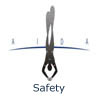
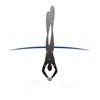
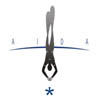 AIDA *Freediver
AIDA *Freediver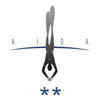 AIDA **Freediver
AIDA **Freediver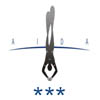 AIDA ***Freediver
AIDA ***Freediver AIDA ****Freediver
AIDA ****Freediver

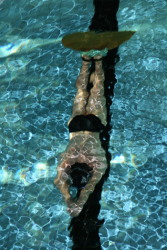
 AIDA Competiton
Freediver
AIDA Competiton
Freediver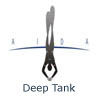
.jpg) Entspannungs-/
Mentaltraining
Entspannungs-/
Mentaltraining